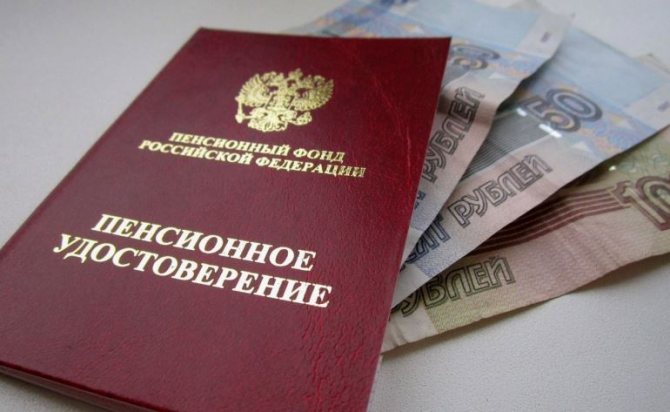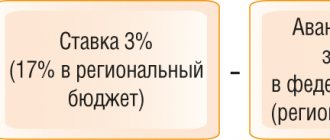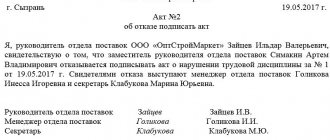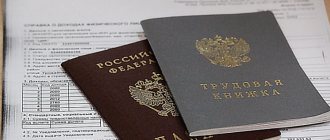Payment terms
For the formation of pension payments based on years of service, the age of the teacher does not matter. But to generate payments, three conditions must be met, namely:
- More than 25 years of experience in specialized institutions, as well as the presence of a minimum coefficient of -11.4 (in 2021).
The length of service will include periods such as: direct work activity; paid holiday; temporary disability; period of training, if the teaching internship was carried out before (and after) training.
- The name of the position and place of work coincides with Resolution No. 781 of October 29, 2002 (https://www.pfrf.ru/info/order/organization_appointment_payme/~1310).
According to the law, pension payments are not accrued to those citizens whose job title differs from the legal title. For example, citizens of such professions as:
- director;
- educator;
- speech therapist;
- other positions, in accordance with Resolution No. 781 (https://www.pfrf.ru/info/order/organization_appointment_payme/~1310).
It is important to know! Formation of pensions for municipal employees In addition, pension contributions are formed if the name of the institution is on the list of “correct” names, for example:
- educational institution;
- Orphanage;
- library;
- higher education institution.
The main document confirming the presence of experience and position is a work book or other documents confirming the necessary information on the teacher’s work activity.
- Full employment.
This criterion was not taken into account until the start of the 2000 school year. At the moment, a teacher must work the standard working hours, which is at least 240 hours per year (for a teacher at a secondary vocational institution - 360 hours per year).
Employment is not calculated for primary school teachers and those teachers who work in rural schools.
What is included in the length of service for a teacher to receive a preferential pension?
If you look at the law, it is clearly stated there: “work activity counts towards length of service only on the condition that the employee performed his duties within the framework of the full teaching load, which is established in accordance with the approved curricula and standards.” That is, if you were a part-time teacher or taught an elective, then this does not count.
However, in addition to the work itself in educational institutions in positions determined by law, the teaching experience includes the following periods:
- Temporary disability for health reasons - based on sick leave;
- Pregnancy and maternity leave - until the child is one and a half years old.
- Training related to and obtaining additional education in a pedagogical profile.
Process of registration of pension contributions
To apply for pension payments, the teacher must contact the Pension Fund at least 6 months before the accrual of actual payments to prepare the necessary documentation.
In this case, an application for a pension should be submitted no earlier than a month before the start of the retirement period. The form must contain the following information: full name of the applicant; passport details; the essence of the request; date and signature (with transcript) of the future pensioner.
The application form can be downloaded from the website.
The application can be submitted to the Pension Fund in one of the following ways:
- personal appeal;
- confidant;
- Russian Post;
- government services portal.
It is important to know! Pension for disabled people of group 2
In addition, the teacher must have with him the following documents:
- Passport.
- Employment history.
- Birth certificate of the child (or children).
- Insurance certificate (SNILS).
- Military ID (for males).
- Salary document for 2001-2002 (or for any 5 years before 2002).
The processing time for documentation is 2 weeks. In the absence of the necessary documentation, the period can be extended to 3 months.
Who is eligible for benefits?
Who is entitled to preferential retirement by law:
- Workers of harmful, physically difficult, dangerous industries.
- To workers in the Far North.
- To teachers.
The work of teachers requires complete dedication and is associated with constant stress. Therefore, for teachers of preschool, school institutions, and universities, the law provides for an early right to rest, which may be earlier than the official retirement age. The main thing in this case is the presence of a set number of years of work experience + IPC (individual pension points).
A teacher’s work experience includes time not only of direct activity at school/university, but also includes:
- Vacation period.
- Sick leave (must have a sick leave certificate).
- Time of maternity leave (counted in length of service for the period before 1992).
- The period of study at the university (if teaching activities were carried out before and after the learning process).
An important point is the teacher’s full-time employment, i.e. full-time. If the work is carried out part-time, then it will be counted towards the total length of service only if it is general education and is entered in the work book.
If a teacher has retired due to length of service, he does not have the right to continue officially working in the general education sector.
These rules are in effect until the end of this year, but what can teachers expect in the coming 2021? Early retirement is possible, but there is an additional condition.
Minimum payment for teachers
The minimum amount of pension payments depends on the salary of the teacher. While the salary depends on the category of the teacher, the size of the workload and the regional coefficient.
The size of the minimum pension in Russia.
The minimum pension should not be lower than 40% of the total salary. For example, with a salary of 20,000 rubles, a teacher should receive at least 8,000 rubles. At the same time, the amount of contributions should not be lower than the subsistence level in the region.
LATEST NEWS CONCERNING PREFERENTIAL PENSION FOR TEACHERS FROM 2021
In 2021, there is certain news regarding which every teacher can apply for a preferential pension. Today we can already say that the retirement age of teachers will not increase, although many media representatives talked about this and actively discussed this issue. It should be taken into account that teachers who continue teaching after retirement age will lose an increase in their pension. Elderly teachers who stopped teaching in 2019 will receive this pension, which is calculated based on their length of service.
This year, the average salary does not matter and does not in any way affect the size of the pension. The Pension Fund reports that the pension for teachers is calculated from the amount of contributions that went to the Pension Fund during the person’s teaching activity. Also this year, as in the previous year, the inflation rate predicted for the next year in the country will be taken into account.
While inflation rose 4% last year, overall teacher pay also rose slightly. In order to calculate what kind of preferential pension a teacher is entitled to, every citizen of the Russian Federation can use a special application called a “pension calculator”.
It is also worth remembering that educators can also hope from the state for certain benefits, bonuses, and supplements. In all regions of Russia, pensioners who worked as teachers or teachers have the opportunity to enjoy discounted travel on public transport throughout the Russian Federation.
Also, those teachers who received a minimum pension or salary can count on having a discount of approximately 50% in pharmacies. Some educators who worked as teachers or educators in rural areas also have a fairly large list of social support, which works differently in each individual region of the Russian Federation.
Calculation of future pension
To independently calculate a future pension, a teacher will need the following formula:
Pension coefficient* 78.28 (point value for 2017) + 4805.11 (fixed payments) = preferential pension amount
In addition, the amount of payments depends on the following indicators:
- Experience.
- Claim period – teachers receive an increased coefficient when applying for pension payments at a later period.
- Salary size.
- Living wage in the region.
- Allowances.
Will the reform of preferential pensions affect teachers?

The bill on raising the age limit for citizens to retire also applies to people working in the teaching field.
Thus, educators who do not have more than 25 years of experience in their profession can currently retire at 55–60 years of age (depending on gender).
If the provisions of the draft are adopted, a teacher without sufficient experience to qualify for a preferential pension will be forced to wait for an old-age pension to be awarded.
For the female half of the population, the age limit will be raised to 63 years, and for the male half - up to 65 years inclusive.
The preferential pension for kindergarten teachers can also be transferred. The reform involves a gradual increase in the age for obtaining the right to early retirement. Implementation of the provisions of the bill may take up to 8 years inclusive, starting in 2019.
According to the new rules, retirement will be possible if you take into account:
- actual work experience of a citizen of the Russian Federation;
- dates of expected retirement.
Although the benefit itself - the possibility of retiring prematurely after working for a certain period of time - will not be abolished, the transition period in one-year increments will lead to a delay in the provision of pension payments to educators for up to 8 years as part of a future reform.
Thus, if a citizen working in the field of education must retire in 2021, he will be able to begin receiving payments no earlier than 2021. If a teacher has the right to a preferential pension in 2021, they will have to expect payments until at least 2022.
Limitations when calculating teaching experience
Until September 1, 2000, the length of service will include all the time spent teaching – regardless of the teacher’s workload. But from now on, from September 1, 2000, work time will be taken into account in the length of service only when fulfilling the teaching or training load established for the salary rate.
As before, length of service does not depend on workload for a number of categories of teachers:
- Primary classes of general education institutions,
- Teachers of secondary schools in rural areas (except for evening and open shift schools).
Standard:
- In institutions for children - at least 6 hours per week (240 hours per year),
- In institutions of secondary specialized education - at least 360 hours per year.
No benefits
Article 8 of this law prescribes the minimum required number of pension points (IPC) to receive an old-age insurance pension, then the picture will be as follows:
- in 2021 13.8 points are required,
- and in 2021 it will be needed 16.2,
- 2020 – 18.6, etc.
Important! Every year the number of points increases by 2.4, the final increase is in 2023 and the final value is 30 points.
In accordance with Law No. 350-FZ of October 3, 2018, the opportunity to become an old-age pensioner for teaching staff, like other categories, will be postponed for 5 years progressively over a period of five years .
The payment of an old-age insurance pension will depend on whether the length of service has been completed:
- 2019 + six months,
- 2020 + a year and a half,
- 2021 +3 years,
- 2022 + 4 years,
- 2023 + 5 years.
Important! The new pension reform for teachers will not affect the length of service required to receive a preferential pension - it will still be 25 years.
In general about benefits
However, benefits for teachers have not been cut; there has only been a redistribution of their funding between different budget levels. In particular, the document describes what benefits are provided for teachers in the city and village. Let us list the main points: The salary of rural teachers is set not lower than the regional average. Its basic part is increasing. The need for advanced training at the expense of budget funds (every three years). Benefits have been established for compensation of utility bills and the purchase of housing. Rules for dividing budgets have been outlined. Teachers teaching in federal institutions are funded at the appropriate level. Everyone else is paid from the local budget. The region can establish its own benefits for teaching staff. Find out the nuances of local legislation from the regional or district administration.
General preferences for teachers:
Teaching is considered hard work. Therefore, all educators enjoy the following benefits: Working hours reduced by half compared to others - 18 hours a week. Unlimited part-time work. This is especially true in a village, where one person can teach several subjects. Long leave provided in the summer: from 42 to 56 days. Early registration of a long-service pension (25 years). The opportunity to go on vacation for a whole year, if you have more than continuous experience 10 years. The teaching position is retained.










